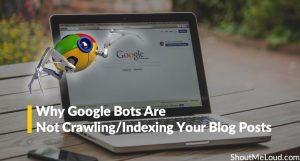Artificial intelligence plays a crucial role in modern marketing, by automating processes, personalizing customer experiences, and optimizing campaigns for better results. In today’s digital landscape, AI technology helps businesses gain insights from vast amounts of data, target audiences more effectively, and deliver relevant content in real-time.
It also enables marketers to automate repetitive tasks, such as data analysis and lead nurturing, freeing up time for strategic planning and creativity. With AI-powered tools, companies can improve customer segmentation, predict consumer behavior, and enhance decision-making. In a highly competitive market, leveraging AI in marketing is essential for staying ahead, improving efficiency, and driving growth.
Benefits Of Artificial Intelligence In Marketing
Artificial Intelligence (AI) plays a pivotal role in modern marketing, offering numerous benefits to businesses. One notable advantage is the ability to provide personalized customer experiences. AI algorithms can analyze vast amounts of customer data to understand preferences, behaviors, and purchase history, enabling marketers to deliver targeted campaigns and relevant content.
Another significant benefit of AI in marketing is enhanced data analysis. AI-powered tools can process and analyze vast quantities of data in real-time, identifying patterns, trends, and insights that human marketers may miss. This enables businesses to make data-driven decisions and optimize marketing strategies for better results.
Additionally, AI facilitates improved marketing automation. With AI, marketers can automate repetitive tasks such as email marketing, social media scheduling, and lead nurturing. This not only saves time but also ensures consistency and efficiency in communication. AI-powered chatbots are another example of automation, providing instant responses to customer queries and enhancing customer satisfaction.
Ai-powered Marketing Tools
Artificial Intelligence (AI) is revolutionizing modern marketing by enhancing its efficiency and effectiveness. One of the key applications of AI in marketing is through chatbots for customer interaction. These AI-powered chatbots are capable of engaging with customers in real-time, providing instant support, and answering frequently asked questions. By using natural language processing and machine learning algorithms, chatbots can understand customer queries, provide relevant information, and even help with purchase decisions.
Another valuable AI-powered tool is recommendation engines, which offer tailored suggestions to customers based on their past behavior and preferences. These engines analyze customer data and provide personalized recommendations to enhance the customer experience and increase sales.
Predictive analytics is another AI-driven technique that helps marketers identify trends and patterns in customer data. By analyzing historical data, predictive analytics can forecast future outcomes and enable targeted marketing campaigns. This helps marketers optimize their strategies and reach the right audience at the right time.
Sentiment analysis is yet another application of AI in marketing. By analyzing customer feedback and social media interactions, AI-powered sentiment analysis tools can assess customer sentiment and gauge their reactions towards products, services, or marketing campaigns. Marketers can then leverage this information to refine their strategies and improve customer satisfaction.
Ai-driven Marketing Strategies
Artificial Intelligence plays a crucial role in modern marketing as it empowers businesses to develop AI-driven marketing strategies. These strategies leverage AI technology to enhance customer targeting, personalize content, automate processes, and optimize marketing campaigns for improved results. By incorporating AI, businesses can gain valuable insights and make data-driven decisions, leading to better customer engagement and increased ROI.
Through AI-driven algorithms, social media marketing can be automated to reach target audiences and enhance customer engagement. AI-powered tools can analyze user behavior, personalize content delivery, and schedule posts for maximum impact. This automation streamlines marketing efforts, saves time, and ensures a consistent online presence.
AI facilitates precise targeting and effective lead generation. Machine learning algorithms analyze vast amounts of data to identify potential customers, their interests, and their purchasing behavior. This enables marketers to create personalized campaigns, tailor content, and convert leads into loyal customers.
Artificial intelligence makes programmatic advertising more efficient and effective. AI algorithms optimize ad placements, analyze audience data in real-time, and deliver personalized advertisements across various platforms. This improves campaign performance, increases click-through rates, and maximizes return on investment. In summary, AI-driven strategies empower modern marketers to create and optimize content, automate social media marketing, enhance targeting and lead generation, and leverage programmatic advertising. Marketers who embrace AI can gain a competitive edge in today’s digital landscape.
Implementing Ai Into Marketing Campaigns
Artificial Intelligence plays a crucial role in modern marketing campaigns, revolutionizing how businesses engage with customers. By implementing AI, companies can analyze data, personalize communication, and automate processes, resulting in more effective and efficient marketing strategies.
| Implementing AI into Marketing Campaigns Identify Key Marketing Objectives In order to effectively implement artificial intelligence (AI) into marketing campaigns, it is essential to first identify key marketing objectives. By clearly defining what you hope to achieve through your marketing efforts, you can better leverage AI tools to meet those goals. This could include increasing brand awareness, generating high-quality leads, improving customer engagement, or enhancing overall sales. Define Target Audience Once your marketing objectives are established, the next step is to define your target audience. Understanding who your ideal customers are will help you tailor your marketing campaigns to reach the right people. AI can assist in analyzing and segmenting your audience based on various factors such as demographics, behavior, and preferences. Select Appropriate AI Tools With your marketing goals and target audience in mind, it is important to select the appropriate AI tools to support your campaigns. This could include AI-powered chatbots for customer service, predictive analytics for personalized recommendations, or automated email marketing tools for efficient campaign management. By incorporating AI into your marketing strategies, you can unlock valuable insights, automate repetitive tasks, and optimize your overall marketing performance. As technology continues to advance, AI will play an increasingly significant role in modern marketing, allowing businesses to stay competitive and effectively engage with their target audience. |
Overcoming Challenges With Ai Adoption
The role of artificial intelligence (AI) in modern marketing is rapidly expanding, but its adoption comes with challenges that need to be addressed. One major concern is data privacy and security. As AI relies heavily on data analysis and processing, marketers need to ensure that customer data is handled securely and in compliance with relevant regulations. Implementing robust security measures and maintaining privacy standards become imperative to build trust with consumers.
An additional challenge in AI adoption is integrating AI with existing marketing systems. Many businesses already have established systems and processes in place, and incorporating AI technology may require significant changes. Proper planning, collaboration with IT teams, and selecting AI solutions that seamlessly integrate with the existing infrastructure can help overcome this challenge.
Resistance to change is another hurdle in adopting AI in marketing. Some stakeholders might be hesitant to embrace AI due to fear of job displacement or uncertainty about its impact on their roles. Companies need to focus on reskilling and upskilling employees, highlighting the benefits of AI in enhancing productivity and enabling more strategic decision-making. Open communication and providing ongoing support are key in addressing resistance and fostering a positive AI adoption culture.
Measuring Success With Ai In Marketing
Artificial Intelligence (AI) has become an essential tool for marketers, revolutionizing the way businesses measure success and make data-driven decisions. Analyzing key performance indicators (KPIs) is crucial to understanding the effectiveness of marketing campaigns. AI-powered tools provide marketers with deeper insights into consumer behavior, allowing them to track ROI and engagement metrics accurately.
One way AI enhances marketing efforts is by precisely monitoring the Return on Investment (ROI) of various campaigns. It helps determine the revenue generated from a specific marketing activity and assess its profitability. By leveraging AI algorithms, marketers can identify the most effective strategies and reallocate resources accordingly.
Engagement metrics are also critical in determining marketing success. AI tools provide granular data on customer interactions, thereby enabling marketers to measure engagement across various channels. This allows for a comprehensive evaluation of campaign effectiveness and provides insights for optimization.
Moreover, AI enables continuous enhancement of marketing strategies. By leveraging machine learning algorithms and predictive analytics, marketers can gain valuable insights into customer preferences and trends. This information is crucial for refining targeted campaigns and delivering personalized experiences to consumers.
In conclusion, AI plays a significant role in modern marketing by enabling effective measurement of success. By analyzing key performance indicators, tracking ROI and engagement metrics, and continuously enhancing strategies through AI, marketers can make data-driven decisions and achieve higher levels of success in their campaigns.
Incorporating Ai Into Your Marketing Plan
Artificial Intelligence (AI) plays a crucial role in modern marketing strategies. It can revolutionize the way businesses connect with their target audience, streamline processes, and achieve better results. Before implementing AI in your marketing plan, it’s essential to conduct an AI readiness assessment. This assessment helps identify areas where AI integration can bring the most value. It involves evaluating your existing data infrastructure, understanding your business goals, and analyzing the readiness and feasibility of integrating AI technologies.
Once you have conducted the AI readiness assessment, you can identify areas for AI integration. These areas can range from customer segmentation, personalized messaging, predictive analytics, and chatbot-enabled customer support. Incorporating AI in these areas can lead to improved customer experiences, increased efficiency, and better decision-making.
By leveraging AI in your marketing plan, you can gain a competitive edge, enhance your targeting capabilities, and deliver more personalized content. Embracing AI technology is the key to staying ahead in the ever-evolving marketing landscape.
Building A Strong Ai Marketing Team
Building a strong AI marketing team is essential for modern businesses looking to leverage the power of artificial intelligence in their marketing strategies. Hiring AI specialists is the first step towards forming a team that can successfully integrate AI technologies into marketing campaigns.
When assembling an AI marketing team, it is important to find individuals who have a deep understanding of AI algorithms, machine learning techniques, and data analysis. These specialists should have the ability to develop AI models that can automate tasks, personalize content, and predict consumer behavior.
Fostering collaboration within the team is crucial for maximizing the benefits of AI in marketing. Encouraging open communication and knowledge sharing among team members can lead to innovative ideas and better decision-making processes. This collaboration should extend beyond the AI team and involve other departments, such as marketing, sales, and customer service, to ensure a holistic approach to AI integration.
| Key Responsibilities | Skills and Experience |
|---|---|
| Developing AI models | – Deep understanding of AI algorithms |
| Automating tasks | – Proficiency in machine learning techniques |
| Personalizing content | – Data analysis skills |
| Predicting consumer behavior |
Overall, building a strong AI marketing team requires hiring AI specialists with the right skills and experience and fostering collaboration to harness the potential of artificial intelligence in modern marketing.
Staying Ahead Of The Curve In Ai Marketing
Artificial Intelligence (AI) has revolutionized the modern marketing landscape, enabling businesses to stay ahead of the curve in their marketing strategies. Keeping abreast with the latest advancements in AI technology is crucial for achieving success in this fast-paced digital era. One of the key aspects of leveraging AI in marketing is continuously testing and optimizing strategies.
AI empowers marketers to analyze vast amounts of data, identify patterns, and gain valuable insights into consumer behavior. By leveraging machine learning algorithms, marketers can make data-driven decisions and personalize their marketing campaigns based on individual preferences and interests. This targeted approach not only improves customer engagement but also enhances the overall user experience.
A crucial element of leveraging AI in marketing is the ability to continuously test and optimize strategies. By utilizing AI-powered tools and platforms, marketers can perform A/B testing, analyze results, and refine their campaigns in real-time. This iterative process allows for quick adjustments and improvements to maximize marketing performance.
| Benefits of Testing and Optimizing Strategies with AI: |
|---|
| 1. Enhanced campaign performance and ROI |
| 2. Improved customer targeting and personalization |
| 3. Quick identification of underperforming elements |
| 4. Real-time optimization based on data insights |
By harnessing the power of AI, marketers can stay at the forefront of marketing innovation and gain a competitive edge in the digital landscape. Continuous testing and optimization are essential to driving successful AI-powered marketing campaigns and achieving sustainable growth in today’s dynamic business environment.
Ai Trends In Marketing
Artificial Intelligence plays a pivotal role in modern marketing, revolutionizing the way businesses connect with their customers. From personalized content recommendations to chatbots for customer support, AI enhances efficiency, targeting, and overall customer experience, driving better marketing results.
AI has revolutionized the marketing industry, shaping the way businesses connect with their target audiences. Voice search optimization is an essential AI trend, as more and more people are using voice assistants to search for information. By integrating voice search optimization strategies for your website, you can ensure your content is discoverable by voice searches. Another significant AI trend is hyper-personalization. With AI algorithms, marketers can analyze customer behavior and preferences to deliver personalized experiences. This allows businesses to tailor their marketing messages to individual customers, increasing engagement and conversions. Augmented reality (AR) marketing is yet another powerful AI tool. AR technology enables marketers to create immersive experiences that blend the virtual and real world. By harnessing the potential of AR, businesses can offer interactive product demonstrations, engage customers with virtual try-ons, and provide unique brand experiences. The Role of Artificial Intelligence in modern marketing is undeniable. By leveraging voice search optimization, hyper-personalization, and augmented reality marketing, businesses can stay ahead of the competition and deliver exceptional customer experiences.
Embracing The Potential Of Artificial Intelligence
What is the Role of Artificial Intelligence in Modern Marketing?
Artificial Intelligence (AI) has revolutionized a multitude of industries, and marketing is no exception. By blending AI with human expertise, businesses have unlocked unprecedented potential to elevate their marketing efforts.
One of the key roles of AI in modern marketing is its ability to nurture creativity. Gone are the days when marketers solely relied on intuition and experience to craft campaigns. AI now aids in generating fresh ideas, analyzing vast amounts of data, and identifying patterns, which significantly enhances creativity in adapting marketing strategies.
Moreover, AI-powered marketing tools allow businesses to personalize customer experiences at scale. By analyzing consumer data and behavior, AI can deliver highly targeted content and recommendations across various channels, thus elevating customer engagement and satisfaction.
Additionally, AI automates mundane and repetitive tasks, giving marketers more time to focus on strategic planning and creative endeavors. The use of AI algorithms and machine learning algorithms can optimize ad placements, keywords, and campaign targeting, resulting in more efficient and cost-effective marketing efforts.
In conclusion, as AI continues to advance, its role in marketing will only grow. By embracing its potential, businesses can unlock a new era of marketing, blending technology with human expertise to drive innovation and success.

Credit: www.salesforce.com
Frequently Asked Questions For What Is The Role Of Artificial Intelligence In Modern Marketing?
What Is Artificial Intelligence In Modern Marketing?
Artificial Intelligence, or AI, is a technology that enables machines to simulate human intelligence, allowing them to perform tasks such as data analysis, automation, and personalized marketing. It empowers marketers to make informed decisions, target the right audience, and enhance customer experiences.
How Does Ai Impact Marketing Strategies?
AI revolutionizes marketing strategies by providing insight into customer behavior through data analysis, enabling marketers to create personalized and targeted campaigns. It automates repetitive tasks, saves time and resources, optimizes ad targeting, and improves customer interactions by understanding their preferences.
Can Ai Improve Customer Experience? Artificial Intelligence
Absolutely! AI allows marketers to gain deeper insights into customer preferences, enabling them to personalize interactions, tailor recommendations, and create engaging content. AI-powered chatbots provide instant customer service, resolving queries promptly, resulting in enhanced customer satisfaction and loyalty.
How Does Ai Help With Data Analysis In Marketing? Artificial Intelligence
AI leverages machine learning algorithms to analyze vast amounts of data quickly and efficiently. It provides valuable insights into consumer behavior, trends, and patterns, enabling marketers to make data-driven decisions, anticipate customer needs, and optimize marketing strategies for maximum ROI.
Conclusion
Artificial intelligence has revolutionized modern marketing by offering advanced analytics and automation capabilities. Marketers can now analyze massive amounts of data to gain valuable insights and customize their strategies to meet individual customer needs. AI-powered chatbots and virtual assistants provide personalized assistance to customers, enhancing the overall user experience.
As AI continues to evolve, its role in marketing will only grow stronger, enabling businesses to drive targeted, data-driven campaigns and achieve greater customer satisfaction.




